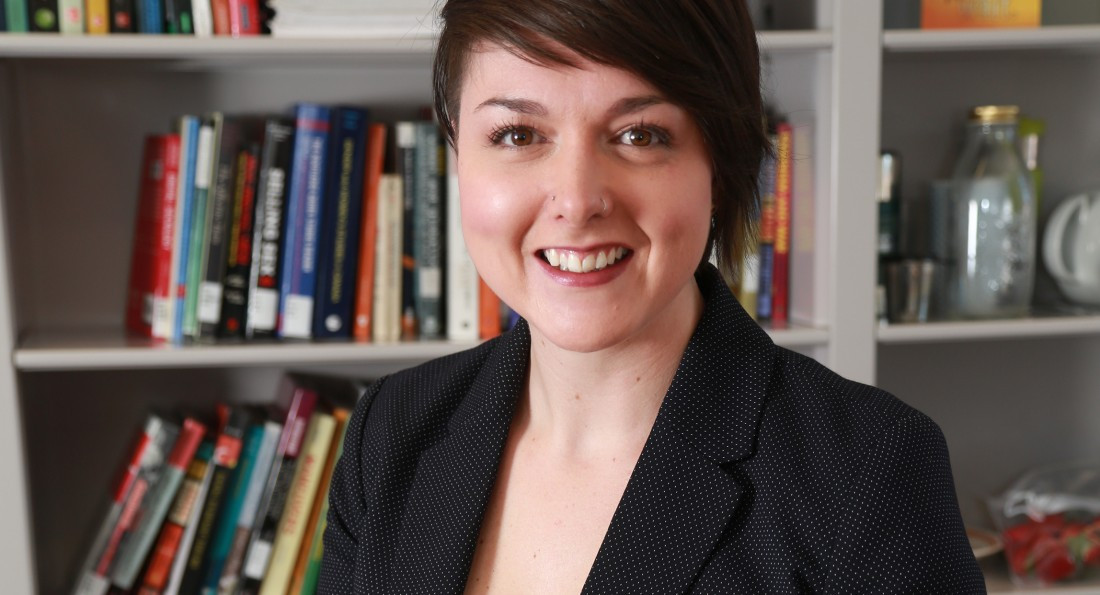Reproductive Justice
Debunking assumptions about sex-selective abortions
A Brandon University prof promises to deliver an interesting lunchtime experience during an upcoming lecture.
“Anyone who has ever thought about or experienced some kind of ‘gender reveal’ – via ultrasound or cupcake – will be interested in the lecture,” Corinne Mason, an Assistant Professor in Gender and Women’s Studies and Sociology, says.
Her lecture, titled Sex-Selective Abortion: Race, Gender and Surveillance, will analyse the intersectionality of these factors.
Mason was completing her PhD at the University of Ottawa when the CBC documentary “Unnatural Selection” first aired in 2012. The documentary uses hidden cameras to follow an under-cover investigation into gender selection abortions.
Mason explains how the document-ary sparked some thought-provoking connections.
“There seemed to be a moral panic around this potential ‘gendercide’ or ‘femicide,’” Mason says. “I wanted to think more about this concern for some women and the female fetus.”
“Additionally, the Conservative government, lead by former PM Stephen Harper, was quick to jump into the conversation with backbenchers offering new legislative attempts to reopen the abortion debate.”
After substantial media response to the CBC documentary, Mason decided to revisit her research. Mason was published in Expanding the Gaze: Gender and the Politics of Surveillance. This lecture is a presentation of her chapter from the book.
“My research shows that this undercover reporting aims to solidify the differences between a so-called ‘us’ and ‘them.’ In this case, the ‘us’ is meant to be white ‘Canadians’ who hold values of gender equality, and the ‘them’ is explicitly described by the CBC as racialized immigrants, who are represented as overly patriarchal by contrast.”
Mason explains how undercover investigation perpetuates the practice of “racialized surveillance” a term coined by Dr. Simone Browne (University of Texas at Austin).
“(Browne) argues that surveillance practices produce racial norms and are either discriminatory, or lead to discriminatory practices,” Mason says. “In my lecture, I employ this term to think about how (the documentary)... generates racial norms about who is and is not practicing sex-selective abortions in Canada.”
Mason says she will explore these topics focusing on accessibility of the content being presented – and encourages students to ask questions whenever they feel comfortable.
“I promise you will learn something of interest, and you can eat your lunch while doing it,” Mason says.
The speakers series, organized by Kevin Walby, is hosted by the Criminal Justice Department in collaboration with the Women’s and Gender Studies Department at University of Winnipeg.
“We try to bring in speakers and scholars from across Manitoba who do interestingly, timely research on justice, criminal justice, and criminology,” Walby says.
Walby tries to host as many speakers series as possible each year, following research that is being conducted on a variety of topics. He hopes that the lectures will connect students and community members with a variety of research topics and with the department of criminal justice.
“Our audience is typically composed of folks from across the university and the community. We strongly encourage community members to attend as well,” Walby says. “(I hope that) the audience will hear something new and interesting at our talks.”
The lecture, Sex-Selective Abortions and Reproductive Justice: Race, Gender and Surveillance, will be held at the University of Winnipeg on Sept. 28, 2016, 12:30-1:30pm in room 2M70.
Published in Volume 71, Number 3 of The Uniter (September 22, 2016)







